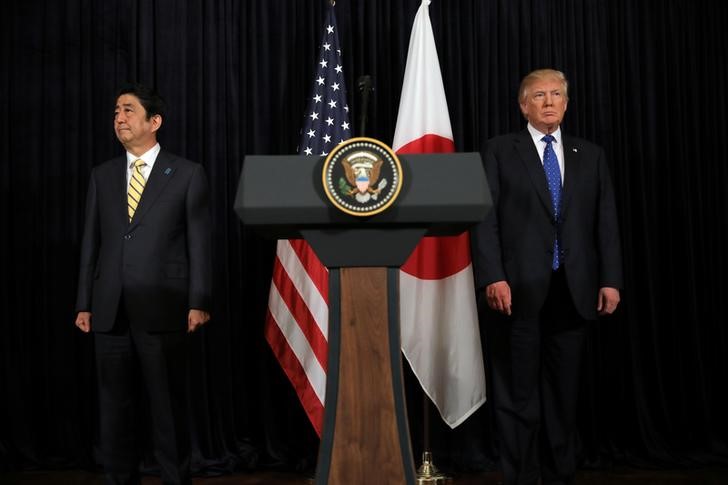In defending his attempts to bond with U.S. President Donald Trump, Prime Minister Shinzo Abe told Diet members last week that however critical other countries, and much of America, might be of Trump, he, and by extension Japan, has no other choice but to forge close relations with the president.
Abe was speaking in the context of regional security and Japan's reliance on U.S. military protection under the Japan-U.S. Security Treaty. But in Kansai, photos of Abe and Trump holding hands, patting each other's shoulders and gazing into each other's eyes only reinforced worries that the prime minister's eager desire for a "bromance" with the mercurial Trump could alienate Japan, economically and otherwise, from its East Asian neighbors.
Such thinking, according to two media polls conducted after the Feb. 10 summit, appears to be in the minority. An NHK nationwide poll showed 68 percent of respondents at least partially praised the meeting while a separate Kyodo News poll showed 70.2 percent were satisfied with it. But Kansai's savvy business leaders wonder if Abe might be tying Japan too close to Trump by making, or hinting at, promises and concessions to his demands that end up reducing Japan's ability to cooperate and compete, economically and otherwise, with Asia.



















With your current subscription plan you can comment on stories. However, before writing your first comment, please create a display name in the Profile section of your subscriber account page.